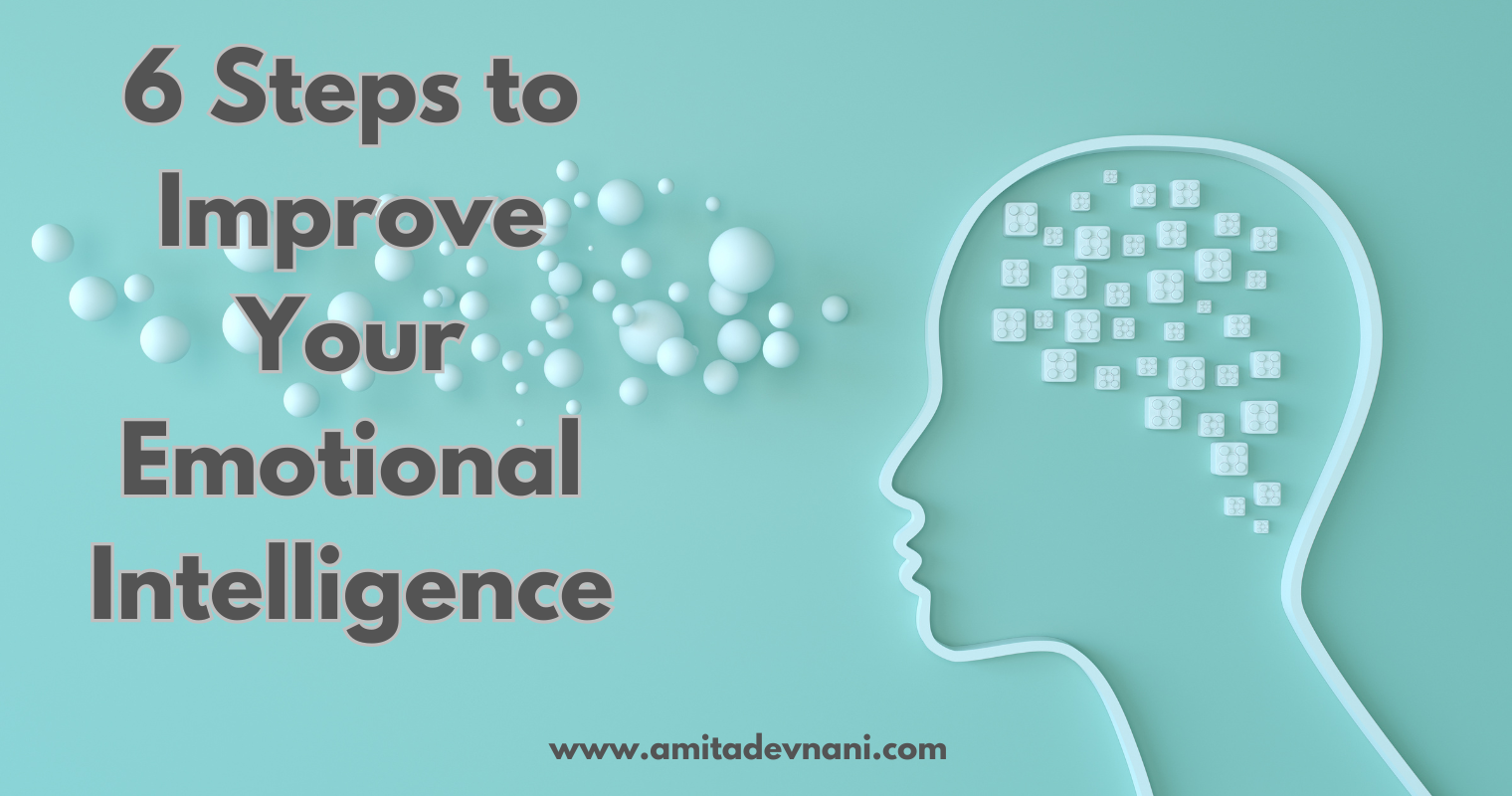- Mon-Sat 11:00 AM - 6:00 PM
- +91 91510 06808

December 20, 2024
Imagine walking into a room and instantly connecting with the people around you—not because you’re the loudest or the smartest, but because you truly understand them. Emotional intelligence (EI) is the secret ingredient that transforms ordinary interactions into meaningful connections. It’s the ability to navigate emotions—yours and others’—with grace and intention. And the best part? You can develop this superpower with practice.
In this blog, we’ll explore six actionable steps to help you boost your emotional intelligence and unlock your full potential. Ready to embark on this transformative journey? Let’s dive in!
---
*1. Cultivate Self-Awareness*
Self-awareness is the foundation of emotional intelligence. It involves understanding your emotions, recognizing patterns in your reactions, and identifying how your feelings influence your thoughts and behaviors.
*How to Develop It:*
- *Journaling:* Write about your daily experiences and emotions to gain insight into your emotional triggers and responses.
- *Mindfulness Practices:* Spend time in quiet reflection or meditation to tune into your thoughts and feelings.
- *Seek Feedback:* Ask trusted friends or colleagues for honest observations about your emotional tendencies.
When you’re self-aware, you’re better equipped to respond thoughtfully rather than react impulsively.
---
*2. Practice Emotional Regulation*
Managing emotions effectively allows you to stay calm and composed in challenging situations. Emotional regulation is about controlling impulsive feelings and behaviors and redirecting them constructively.
*How to Develop It:*
- *Pause Before Reacting:* Take a moment to breathe and assess the situation before responding.
- *Cognitive Reframing:* Challenge negative thoughts by looking at situations from a more balanced perspective.
- *Develop Coping Mechanisms:* Use relaxation techniques like deep breathing, progressive muscle relaxation, or engaging in a hobby to release stress.
---
*3. Strengthen Empathy*
Empathy is the ability to understand and share the feelings of others. It is essential for building meaningful relationships and fostering trust.
*How to Develop It:*
- *Active Listening:* Pay full attention when someone is speaking, avoiding the urge to interrupt or formulate your response prematurely.
- *Ask Open-Ended Questions:* Show genuine curiosity about others' experiences and perspectives.
- *Read Non-Verbal Cues:* Learn to interpret body language, facial expressions, and tone of voice to better understand unspoken emotions.
When you’re empathetic, you create deeper connections with those around you and foster an environment of mutual respect.
---
*4. Enhance Social Skills*
Strong social skills are a hallmark of high emotional intelligence. They allow you to communicate effectively, resolve conflicts, and build collaborative relationships.
*How to Develop It:*
- *Practice Effective Communication:* Use “I” statements to express your needs and feelings clearly without blaming others.
- *Work on Conflict Resolution:* Learn to approach disagreements with a solution-oriented mindset rather than escalating the tension.
- *Engage in Team Activities:* Participate in group projects or social gatherings to build rapport and improve interpersonal skills.
---
*5. Develop Self-Motivation*
Self-motivation is the inner drive to pursue goals with energy and persistence, even in the face of challenges. It reflects your ability to focus on long-term outcomes rather than immediate gratification.
*How to Develop It:*
- *Set Meaningful Goals:* Align your objectives with your core values to stay committed and motivated.
- *Celebrate Small Wins:* Acknowledge progress along the way to maintain enthusiasm and momentum.
- *Cultivate Optimism:* Focus on opportunities rather than obstacles, and remind yourself of past successes to stay positive.
---
*6. Seek Professional Guidance*
Improving emotional intelligence often benefits from the perspective and expertise of a trained professional. A psychologist or life coach can provide personalized strategies, tools, and feedback to help you master EI.
If you’re ready to take your emotional intelligence to the next level, reach out to *Amita Devnani*, an experienced psychologist and life coach. With a proven track record of helping individuals achieve emotional balance and personal growth, she offers both in-person and virtual sessions tailored to your needs.
*Contact Details:*
Phone: +91 91510 06808
Email: amitadevnani.psychologist@gmail.com
---
*Why Emotional Intelligence Matters*
Emotional intelligence is not just about feeling good; it’s about living well. It enhances every aspect of life, from personal relationships to professional achievements. By following these six steps, you’ll be on your way to building a more fulfilling, connected, and emotionally intelligent life. Remember, like any skill, EI requires practice and commitment—but the rewards are immeasurable.